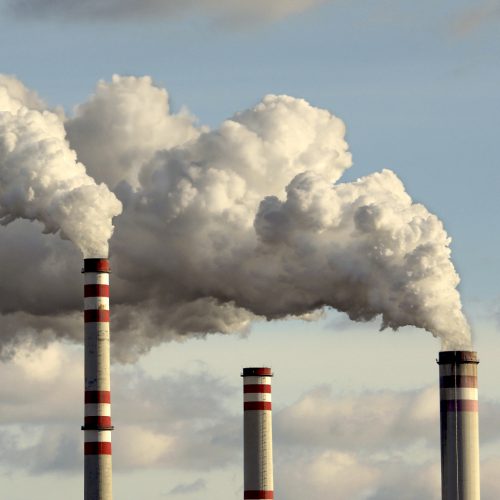
By the middle of the next decade, it will be cheaper to build a new combined-cycle, gas turbine natural gas-fired power plant than to operate 78% of currently existing coal-fired plants. U.S. consumers would save $10 billion annually beginning in 2021, money that is currently going to pay government-approved prices at regulated coal-fired plants.
These are among the conclusions announced yesterday by Carbon Tracker, a nonprofit company that was established “to produce new thinking on climate risk.” The company is primarily funded by European and U.S. foundations.
The new study, “No Country for Coal Gen,” examines the economics of each U.S. coal-fired generation plant and gives investors “a tool to support a rational closure programme and ensure their portfolios are in line with the Paris Agreement to keep global warming below 2° C.”
Senior analyst and report co-author Matthew Gray said:
Cheap gas and renewables are here to stay and will continue to undermine the economics of coal. President Trump has pledged to revive the industry but the reality is that phasing out coal power in line with the Paris Agreement will save consumers billions and make the US economy more competitive.
According to the study, the estimated total stranded value for coal plant owners in a scenario that phases out all unabated coal-fired generation by 2035 totals $104 billion. The hardest hit publicly traded power companies would be Southern Co. (NYSE: SO) at $9.2 billion, Duke Energy Corp. (NYSE: DUK) at $8.9 billion and American Electric Power Co. (NYSE: AEP) at $5.4 billion.
Based on a book value of $249 billion for all regulated units, Carbon Tracker estimates regulatory risk of $185 billion in 2035. Regulated utilities are mostly protected from competition, charging government-approved prices and receiving guaranteed returns. That means that changes won’t be easy:
Utilities that own regulated units often have little incentive to retire costly coal power. While merchant units are subject to financial losses through market forces, regulated units pass costs onto customers. The rate base creates a perverse incentive as utilities with regulated capacity are often motivated to continue investing in existing coal units. … [A]n overwhelming proportion of existing coal capacity will soon be economically unviable compared to other new and existing power technologies. However, these coal units could be kept running as owners seek to make ongoing capital investments to earn a return on the remaining undepreciated balances. This form of corporate welfare is stifling the energy transition at the expense of consumers.
The report concludes by saying that transitioning from coal-fired generation would be good for investors, consumers and the economy as a whole.
Sponsored: Want to Retire Early? Here’s a Great First Step
Want retirement to come a few years earlier than you’d planned? Or are you ready to retire now, but want an extra set of eyes on your finances?
Now you can speak with up to 3 financial experts in your area for FREE. By simply clicking here you can begin to match with financial professionals who can help you build your plan to retire early. And the best part? The first conversation with them is free.
Click here to match with up to 3 financial pros who would be excited to help you make financial decisions.
Thank you for reading! Have some feedback for us?
Contact the 24/7 Wall St. editorial team.
 24/7 Wall St.
24/7 Wall St.

